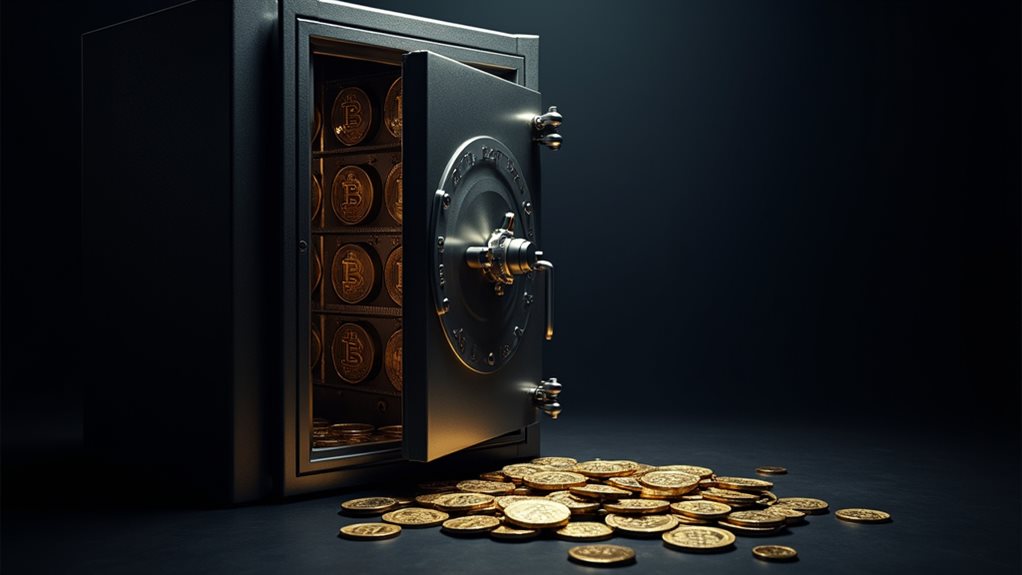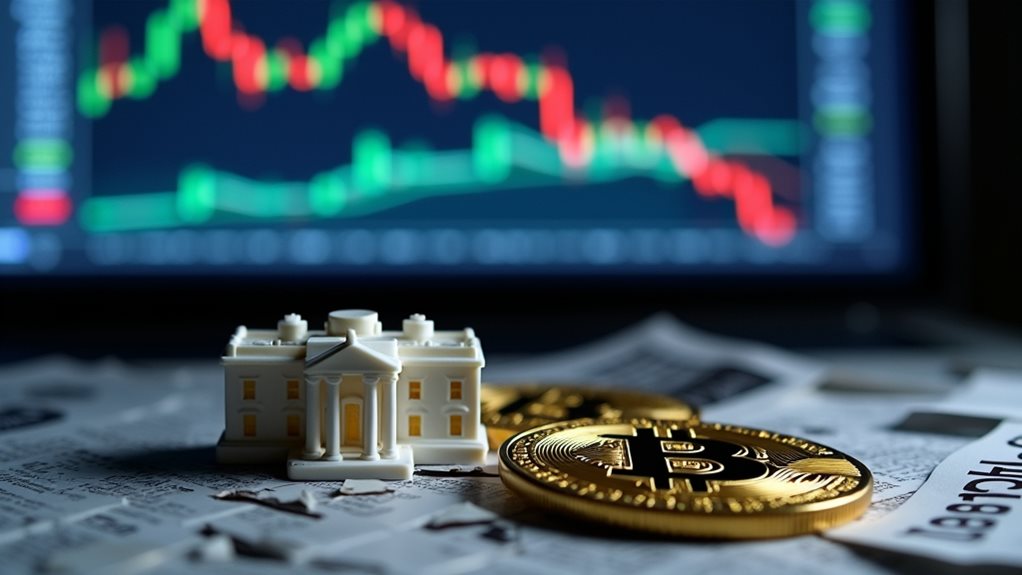Bitcoin’s wealth distribution isn’t pretty. While over 200 million crypto wallets exist globally, a mere fraction hold significant value – with institutional investors, billionaires, and governments controlling 80% of all Bitcoin. Only 30 million wallets contain more than $100 worth of crypto, and daily transactions hover around 270,000. Big players treat Bitcoin as a store of value, not for trading. Their massive holdings create market swings that impact everyone else. The real story goes deeper than the numbers.

While millions of Bitcoin wallets exist worldwide, a shocking truth emerges from the data – big players are hoarding most of the coins. Over 80% of all Bitcoin sits in massive wallets controlled by billionaires, institutions, and even governments. That’s right – while regular folks dabble with fractional coins, the whales are swimming in digital gold.
Take the ARK 21Shares Bitcoin ETF, for example. They’re sitting on a casual 49,000 BTC. Must be nice. While approximately 200 million Bitcoin wallets exist globally, only about 30 million hold more than $100 worth of crypto. Do the math – that’s a whole lot of empty or near-empty wallets floating around.
These big holders aren’t just collecting Bitcoin for fun. They’re playing the long game, treating it as a store of value and betting on future price appreciation. Some are institutional investors diversifying their portfolios, while others are just wealthy individuals stockpiling digital assets in cold storage vaults. Whatever their reasons, they’re not letting go easily. With global market value exceeding $3 trillion in late 2024, the stakes have never been higher.
Deep-pocketed Bitcoin holders are playing chess while others play checkers, hoarding coins as a long-term wealth preservation strategy.
This concentration of wealth has real consequences for the market. When whales move their coins, prices can swing wildly. With limited UTXOs capping the number of active wallets at around 64 million, liquidity gets squeezed when large holders reduce supply on exchanges, and their massive buying power can send signals that attract new investors – or scare them away.
Yet despite this wealth inequality, Bitcoin adoption keeps growing. Daily transactions hover around 270,000, and network security is stronger than ever, with hashrate exceeding 800 EH/s. Over 89% of Americans now know what Bitcoin is, even if they don’t own any. Investors increasingly rely on hardware wallets for maximum security against potential hacks and scams.
The future might bring even more institutional hoarding. Government involvement could legitimize Bitcoin further, potentially driving prices higher. But here’s the kicker – unless Bitcoin becomes more evenly distributed, we’re looking at a digital version of the same old wealth concentration story.
Different technology, same tale of the haves and have-nots. Welcome to the future of money, where the rich still get richer – just with different tools.









